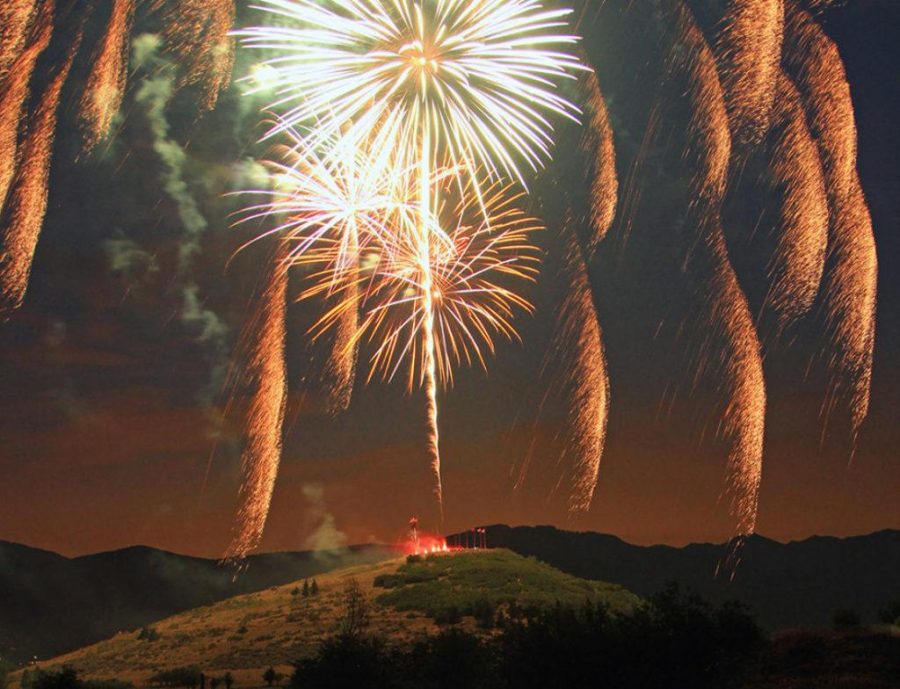The celebration of the Fourth of July is a tradition in the United States that unites the country and pays homage to our founding. Although the Declaration of Independence was formally delivered two days prior, and approved by Congress in early August, the Fourth is nonetheless an excellent day to celebrate our nation. However, these festivities are often marred by an unfortunate mixture of alcoholic beverages and inexperience with explosives. Following several fires in the Salt Lake area, the Utah Legislature is preparing for a fierce debate on firework safety next spring.
During the 2011 legislative session, Utah deregulated the sale of aerial fireworks to private individuals. Instead of mandating a policy that is difficult to enforce, state policymakers agreed that municipalities ought to have the final say over which displays could be purchased and used by their residents. This approach has found success in 43 other states and the District of Columbia, which supports public access to fireworks. Yet, lawmakers such as Utah’s House Minority Whip, Joel Briscoe, disagree with these changes.
Addressing constituents in Sugar House, Representative Briscoe told reporters, “I think we ought to just talk about banning [fireworks] outright. We should have that discussion and that dialogue.” Fires in the region, including one near a professional show in Sugar House Park, prompted residents to complain about the continued use of fireworks. These incidents led to Major Ben McAdams requesting feedback from the Salt Lake community on the continued use of fireworks by private individuals. Michelle Schmitt, who is the spokeswoman for Mayor McAdams, reported that “Seventy-five percent [of citizens] favored some kind of ban; 13 percent opposed and the remainder weren’t sure or had other specific restrictions in mind.”
Although the Mayor has yet to propose any changes, Representative Briscoe is worried that vending fireworks to the general public presents a serious issue. However, while these discussions of banning aerial displays seem logical, it is crucial to look at the issue from a different angle. Utah, which lost the Outdoor Retailer Convention, Gordon Hayward and lowered its blood alcohol limit to 0.05, is struggling to catch positive attention. Even Representative Briscoe is hesitant to support an outright ban, stating that any legislation would still allow for professional displays put on by cities and counties.
Understandably, fireworks do have an effect on the environment. Once these explosives ignite and detonate, they discharge carbon monoxide, sulfur dioxide, and nitrogen oxide. These chemicals are all air pollutants, which is a significant issue for the Salt Lake Valley. According to a study conducted by the Environmental Protection Agency, “The level of particulate matter, or small pollutants like dust, dirt, and soot present in the air, increased by 42% on average across the U.S. on the Fourth of July.” However, these studies neglect to directly measure how many private individuals are contributing to this increase.
Unlike a firearm, which is guaranteed by the Second Amendment, fireworks are not a right for all U.S. citizens; rather, they are a privilege. Yet, relying on a blanket statewide ban to solve an issue is a method that has consistently failed. Sure, Utah vendors might be prevented from selling fireworks, but that will only go so far. Individuals committed enough to a fireworks display will simply drive to Wyoming, find a desolate area in Utah to launch their rockets, and disobey the law. Instead of allowing local communities to regulate and inform residents about proper use, citizens are forced to engage in unlawful behavior.
Despite recent opposition, much of Utah’s leadership disagrees with a statewide ban. Directly following July 4th, a spokeswoman for Governor Herbert said, “…that he’ll leave it up to local officials to make decisions about fire and fireworks restrictions, as opposed to a statewide ban.” Allowing citizens to launch aerial displays three days before and after Independence and Pioneer Day respectively means that there is a two week period of increased economic activity.
Having signed new legislation that allows fireworks to be sold to the general public in Iowa, Governor Branstad has long supported this initiative. The state Legislature in Iowa, similar to Utah, hopes that lifting restrictions will boost local economies and tourism. The importance of avoiding a ban firework, and promoting safety, is rather evident. Allowing Utah residents to purchase aerial displays means that local communities decide which regulations to enforce. Specific conditions in the area, including the climate and fire warnings, can be better used to guide informed decisions.
Allowing private Utahns to purchase fireworks for the Fourth of July, while encouraging safety and proper training, is the direction that the Utah Legislature should continue to uphold.


